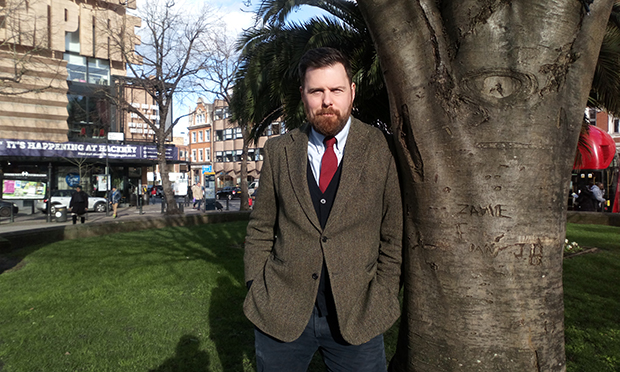Fortnightly waste collections move closer with council vote next week

Hackney’s top councillors will vote next week on proposals to start collecting non-recyclable black bag waste on a fortnightly basis by next year.
Part of the plans will see the introduction of black or grey 180-litre wheelie-bins for residents, while recycling and food waste services will remain weekly.
The Town Hall hopes the measures, which saw the biggest ever response to a council consultation, will boost recycling rates and see a decline in the amount of wastesent to the North London Wast Authority (NLWA), thus saving money in levy costs.
Waste chief Cllr Jon Burke said: “The recommendation to introduce fortnightly collections for residual waste is predicated on a number of factors. The drivers for this are not only to improve recycling performance, but also to reduce the amount of residual waste being incinerated.
“This will help insulate the council against the expected rise in residual waste disposal costs in the medium to long term, arising from the necessary construction of the replacement energy recovery facility.
“Further, and most importantly, by structurally reducing the amount of black bag waste sent for incineration we can eliminate the associated carbon dioxide emissions, reducing the carbon intensity of Hackney’s waste system.”
It is understood that £3m has been set aside by the Town Hall to move to the new system, with half of that marked as “mitigation costs” in the event that a significant number of people in the borough do not comply with the new rules.
Over 10,000 people responded to the consultation, of whom 8,440 believed it important or very important that Hackney recycles more, with 88 per cent of the total believing the council should encourage residents to do so.
However, 52 per cent of those asked (4,766) disagreed or strongly disagreed with the proposal to collect non-recyclable waste fortnightly, with 55 per cent believing it would have a negative impact on their household. Thirty-nine per cent of respondents agreed with the proposals.
The top concerns cited by those in opposition to the plans were smell and health concerns, vermin, people rummaging through the bins, and overflowing bins, with a small number of people citing nappies as a worry.
The higher the amount of food already recycled in a household, the more likely respondents were to agree with the plans, while the greater the number of people in a household, the more consultees were inclined to object.
The roll-out of 180-litre bins will be undertaken by the council to address the concerns around vermin, rummaging, foxes, and overflowing containers.
The report reads: “When the responses are further analysed, it is evident
that respondents from large families, those that are aged 16-24, those people with disabilities, and those whose religion is Charedi Jewish or Jewish are the ones who disagree most with the proposed service change.
“The analysis further shows that these groups don’t currently engage with all the services that the Council offers, such as the food waste service.
“Further work has been undertaken, including a waste compositional analysis of the highest waste producing area in the borough. This highlights the challenge facing the service, and those households who produce large quantities of waste, some three times the borough average.
“However, the analysis shows that if households used all of the services available to them, and to their full potential, restricting residual waste to a fortnightly collection can be achievable. For those that may have difficulties in achieving this, there will be policies that can assist, such as a large household policy.”
Burke predicted that bringing in the fortnightly collections would see a 21 per cent reduction in incinerated waste per household by 2022, with an associated drop in costs for the council of disposing of it with the NLWA by £246,000 per annum.
Payments to the NLWA for getting rid of Hackney’s waste are set to rise by 23.7 per cent to £10,855,000 in 2023/24, with the council aiming to mitigate this cost as much as it possibly can.
The waste boss went on to predict that the new rules will also see an increase in the borough’s recycling rate to 31 per cent by 2022/23, from its current rate of 27.4 per cent.
City Hall requires all boroughs to work towards a London-wide recycling rate of 45 per cent by 2025.
